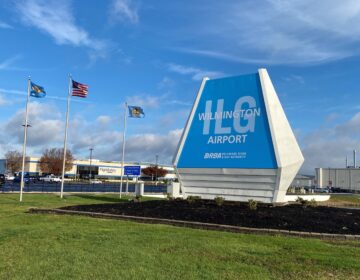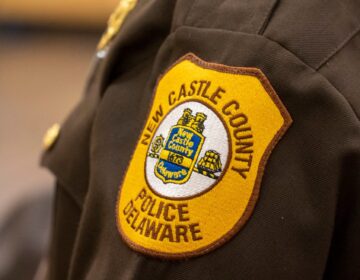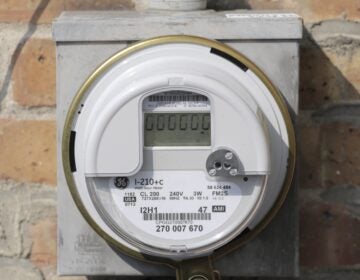Clean streets program allows those struggling with addiction to literally work towards recovery
A work program designed to help keep Delaware’s streets clean is also helping those struggling with addiction work to recovery.
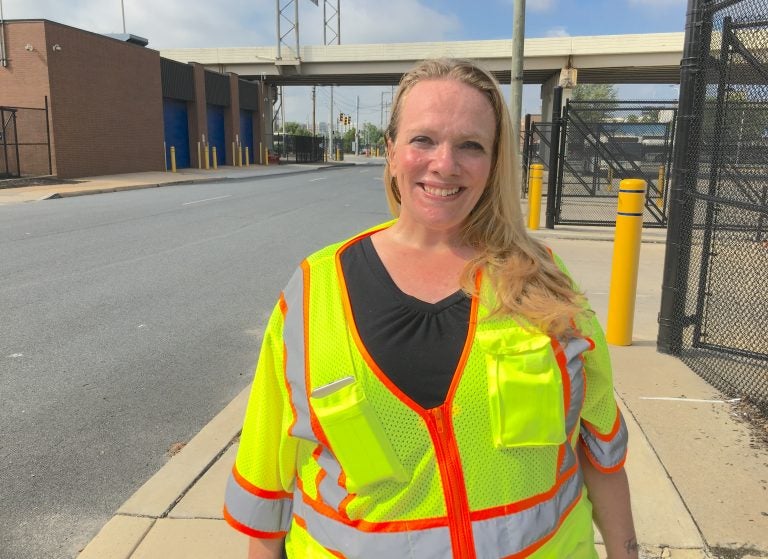
Tina Hylton says cleaning up trash on the streets of Wilmington has helped her stay sober. She’s part of a pilot program called Work-a-Day Earn-a-Pay that’s being expanded statewide. (Mark Eichmann/WHYY)
A work program designed to help keep Delaware’s streets clean is also helping those struggling with addiction work to recovery.
Gov. John Carney joined other state leaders under an I-95 overpass in downtown Wilmington to announce plans to expand the “Work-a-Day Earn-a-Pay” program statewide, which is open to anyone in need of a job. Since March, 46 workers in the pilot program cleaned streets in Wilmington, collecting 759 bags of trash along major roads leading into the city from the interstate.
The program that will now extend beyond Wilmington is funded with a $483,000 of the $2 million budgeted for litter control under Carney’s Keep DE Litter Free campaign. “The expansion of the program is actually focusing on roadways as you enter into the state, so you’re really making a good first impression,” said Jennifer Cohan, state transportation secretary. “We knew the pilot was a success, so we’re excited to take it statewide.”
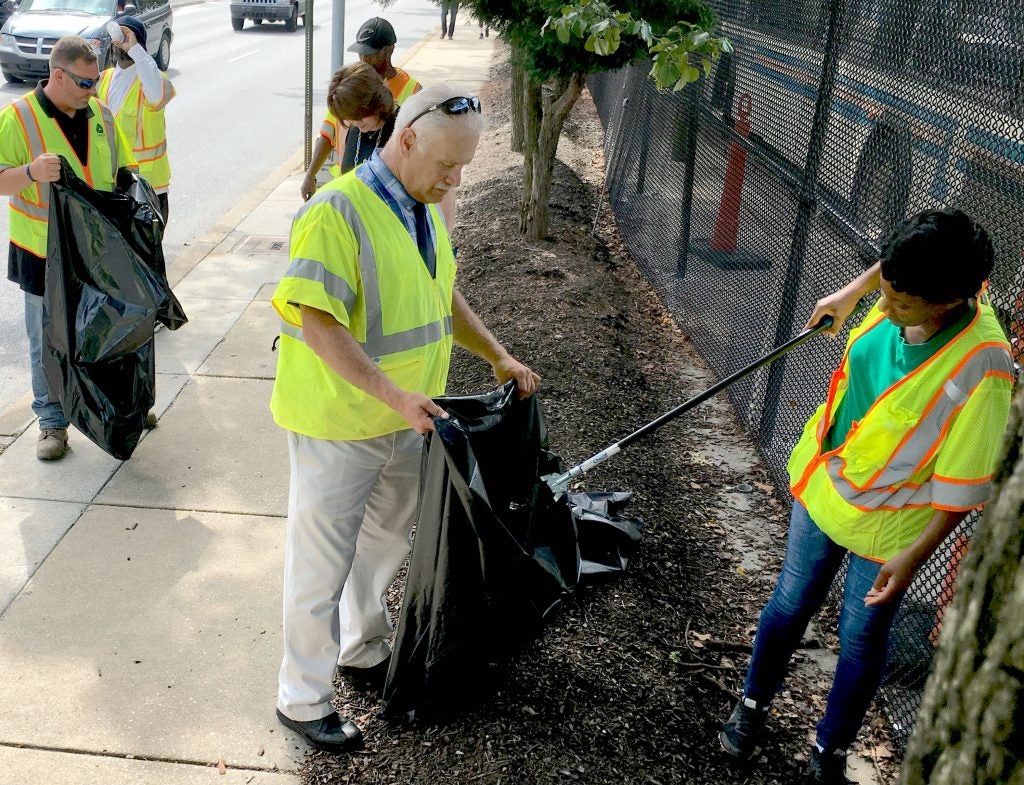
Though simple as it may be, this work has been life changing for Tina Hylton, who came to Delaware after her husband, a drug user, committed suicide. “This has been the most amazing experience I think I’ve ever had,” Hylton said. The former nurse says she’s one year clean and free from addiction thanks in large part to this job and the wraparound services provided to the workers by groups like the treatment center Aquila and Goodwill of Delaware. “Once you come from an abandoned house, no food, no water for three or four days and you’re given an opportunity to live again, you can’t put a price tag on that,” she said.
In addition to employment, those in the program also get job training, help with writing a resume, and a reference when they want to apply for a more permanent position somewhere else. “We are incorporating other skills to help them become more successful and be attractive to more positions and to grow,” said Goodwill of Delaware CEO Colleen Morrone. “We are looking forward to it being expanded into a statewide program and being able to really make a difference here in this state.”
Hylton said the workers have a sense of pride as they go about picking up trash, especially in spots where children play. “Our first day, we cleaned up approximately 400 heroin bags from a park,” she said. “If you think of a very large trash bag, we filled one completely full of drug paraphernalia, needles, everything. So when we leave we know that the kids have a safe place to play. We’re not just cleaning the streets.”
In May, the state’s launched the Delaware Anti-Litter Alliance, a collaborative effort of cities and towns throughout the state to clean up the state’s streets. The coalition aims to reduce trash blowing around the state by encouraging residents not to litter, pursuing anti-litter policies, and holding a cleanup event at least once a year.
WHYY is your source for fact-based, in-depth journalism and information. As a nonprofit organization, we rely on financial support from readers like you. Please give today.



